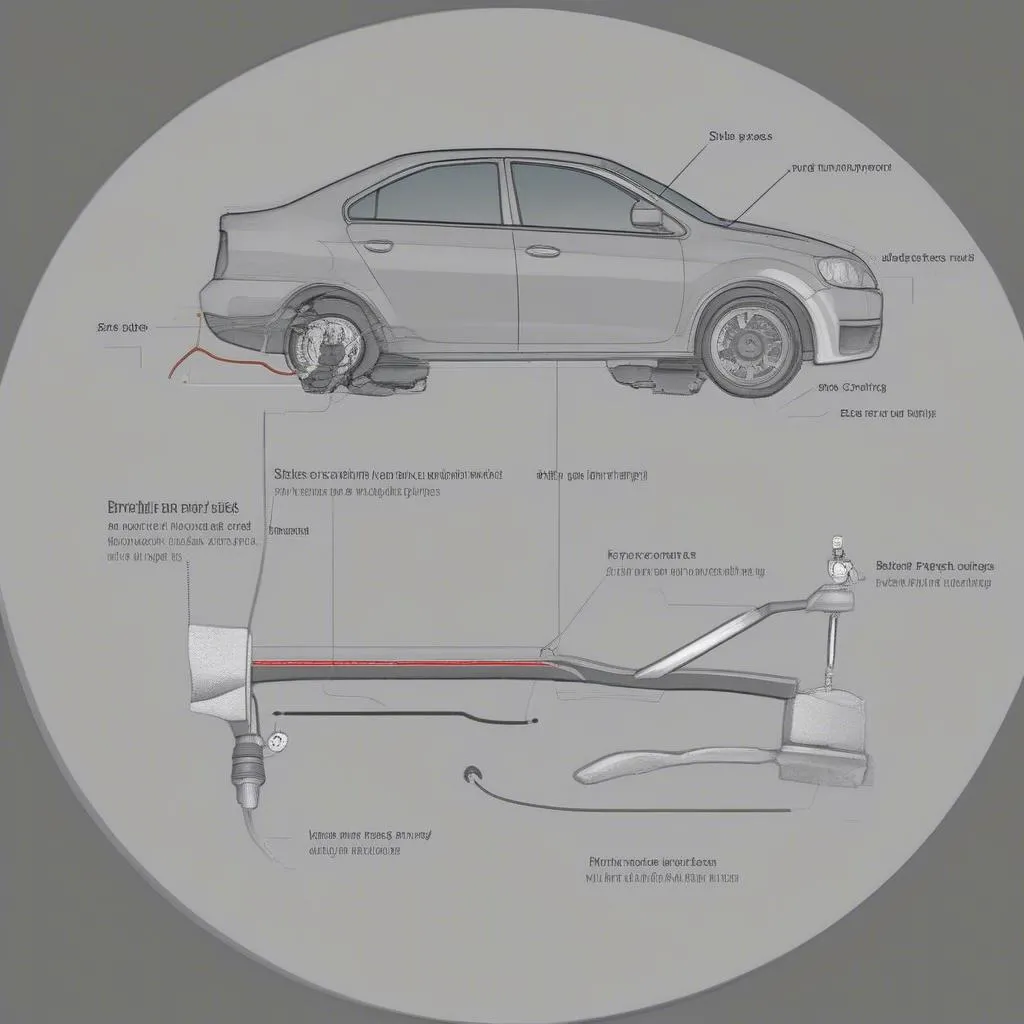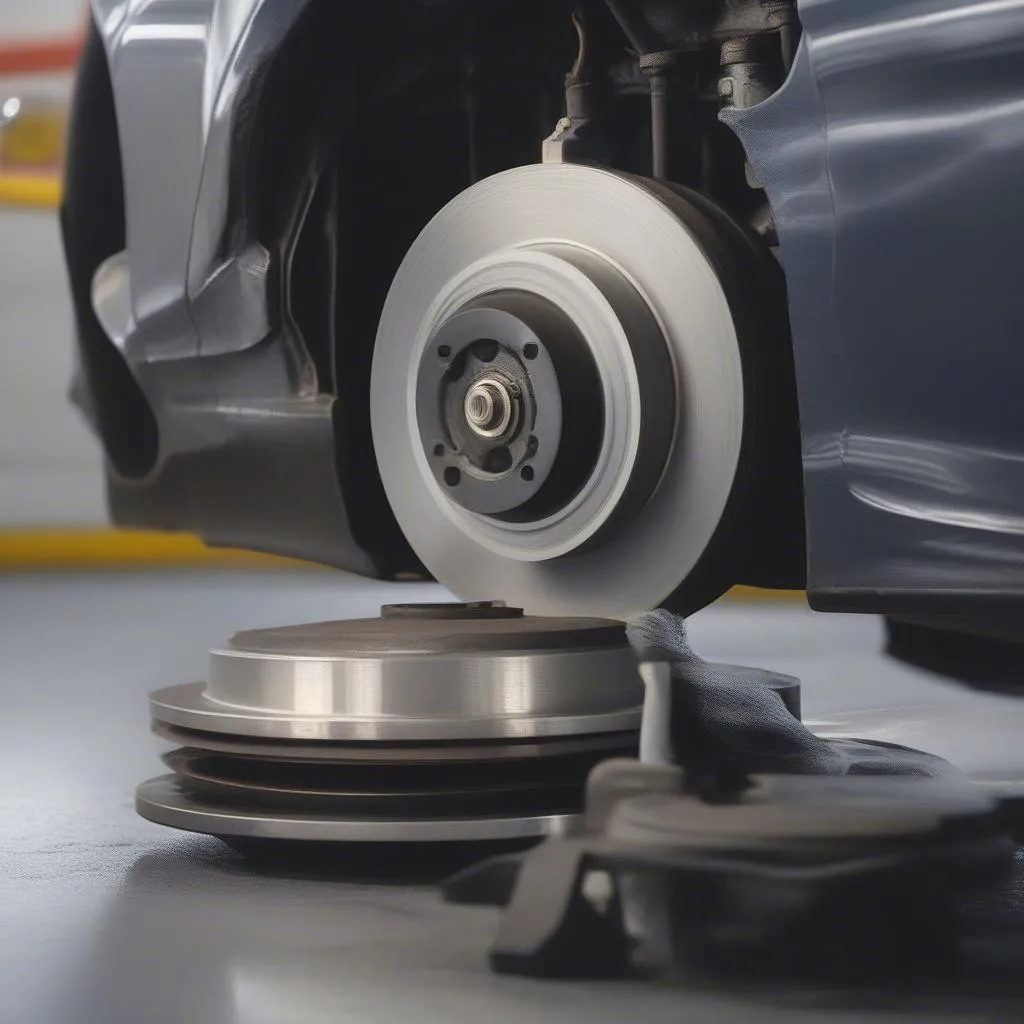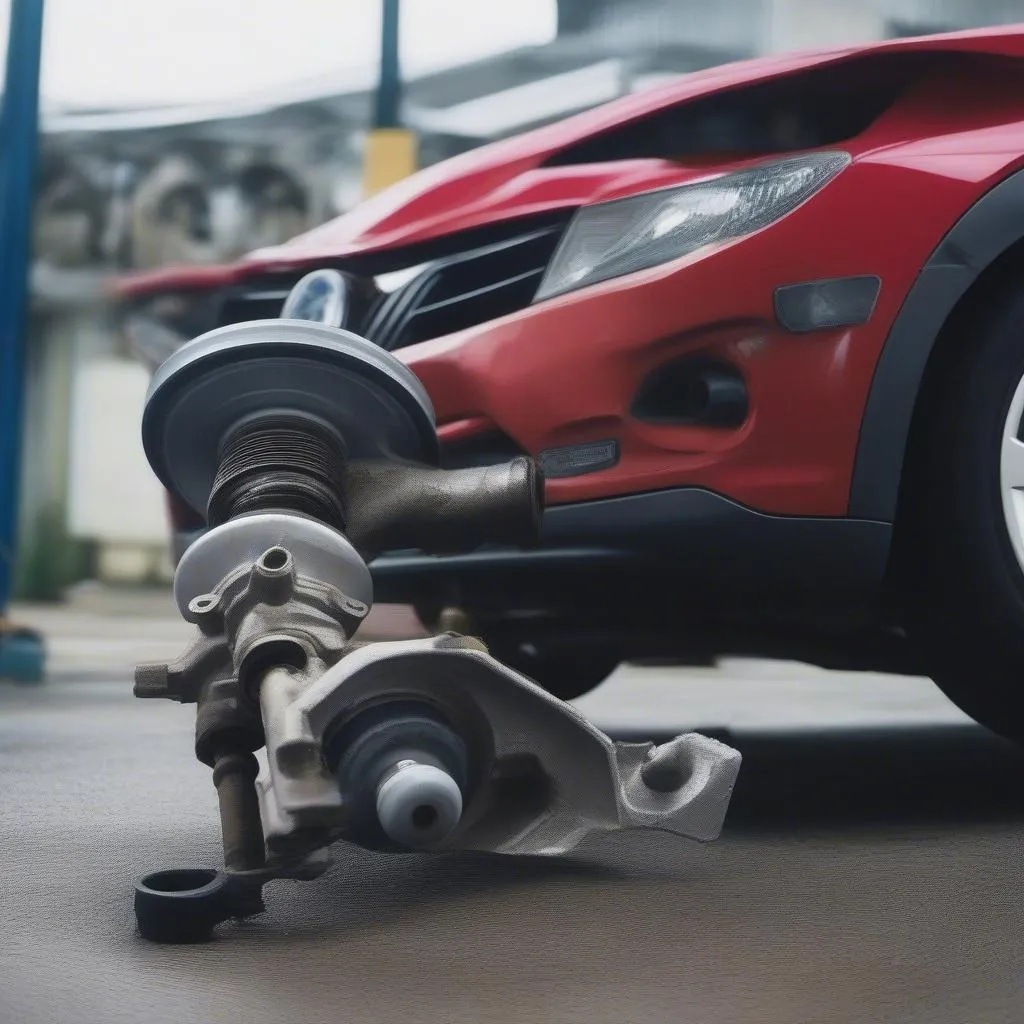Imagine this: You’re driving down the highway, feeling confident and in control. Suddenly, you need to brake. As you apply pressure to the pedal, your car doesn’t stop straight – it veers to the left or right. This can be a scary and frustrating experience, leaving you wondering what’s wrong with your vehicle. In this article, we’ll explore the common reasons behind this issue and how to address them.
Understanding Why Your Car Pulls When Braking
When your car pulls to the side while braking, it’s often a sign of an imbalance in braking force. This can stem from several factors, including:
Uneven Brake Pad Wear
 Uneven Brake Pad Wear Leading to Car Pulling While Braking
Uneven Brake Pad Wear Leading to Car Pulling While Braking
This is one of the most common reasons why your car might pull while braking. When brake pads wear unevenly, the braking force on each wheel is unequal, causing the vehicle to pull towards the side with the more worn pads. Think of it like a seesaw – if one side is heavier, it will tilt down, causing the vehicle to pull in that direction.
Warped Brake Rotors
 Warped Brake Rotors Causing Car Pulling While Braking
Warped Brake Rotors Causing Car Pulling While Braking
Imagine a spinning record that’s warped – it’s no longer flat and even. The same can happen to your brake rotors, which are the discs that the brake pads clamp onto. Heat can cause the rotors to warp, creating an uneven surface. As a result, the brake pads don’t grip the rotor evenly, leading to a pull during braking.
Issues with the Suspension System
 Suspension System Issues Leading to Car Pulling During Braking
Suspension System Issues Leading to Car Pulling During Braking
The suspension system works to keep your car stable and balanced, especially when braking. A faulty suspension component, like a worn-out shock absorber or strut, can disrupt this balance, leading to a pull while braking.
Other Potential Causes
While these are the most common causes, other factors can also contribute to a car pulling while braking. These may include:
- Low Tire Pressure: A tire with low pressure has a smaller contact patch with the road, which can lead to a loss of traction and a pull during braking.
- Stuck Caliper: If a brake caliper gets stuck, it can prevent the brake pad from retracting, leading to constant pressure on the rotor and a pull towards that side.
- Steering System Issues: A loose or damaged steering component can also cause a pull while braking, as the steering wheel might not be properly aligned with the wheels.
What To Do If Your Car Pulls When Braking
If you experience your car pulling to one side while braking, it’s important to take action. Here’s what you should do:
- Check Your Brake Pads: Inspect your brake pads for wear. If they are worn down, they will need to be replaced.
- Check Your Brake Rotors: Examine your brake rotors for warping. If they are warped, they will need to be resurfaced or replaced.
- Have Your Suspension System Inspected: Take your car to a mechanic for a thorough inspection of your suspension system.
- Check Your Tire Pressure: Make sure all your tires are inflated to the proper pressure level.
- Inspect Your Steering System: Look for any signs of damage or looseness in your steering system.
Frequently Asked Questions
Q: How can I tell if my brake pads are worn?
A: You can visually inspect your brake pads through the wheel spokes. If the pad material is less than ¼ inch thick, it’s time for a replacement.
Q: Can I replace the brake pads myself?
A: While some people are comfortable replacing brake pads themselves, it’s a complex procedure and can be dangerous if not done properly. It’s recommended to have a qualified mechanic perform the job.
Q: How often should I have my brake system inspected?
A: It’s a good idea to have your brake system inspected by a mechanic at least once a year or every 12,000 miles, whichever comes first.
Next Steps: What To Do If You Need Assistance
If you’re experiencing issues with your car pulling while braking, don’t hesitate to contact us. We offer expert diagnostics and repair services for all makes and models of vehicles. Our team is available 24/7 to assist you with your automotive needs. Reach out to us via Whatsapp at +84767531508 for a free consultation.
Stay safe and keep your car running smoothly!
Note: This information is intended for general knowledge and should not be considered a substitute for professional advice from a qualified mechanic.
